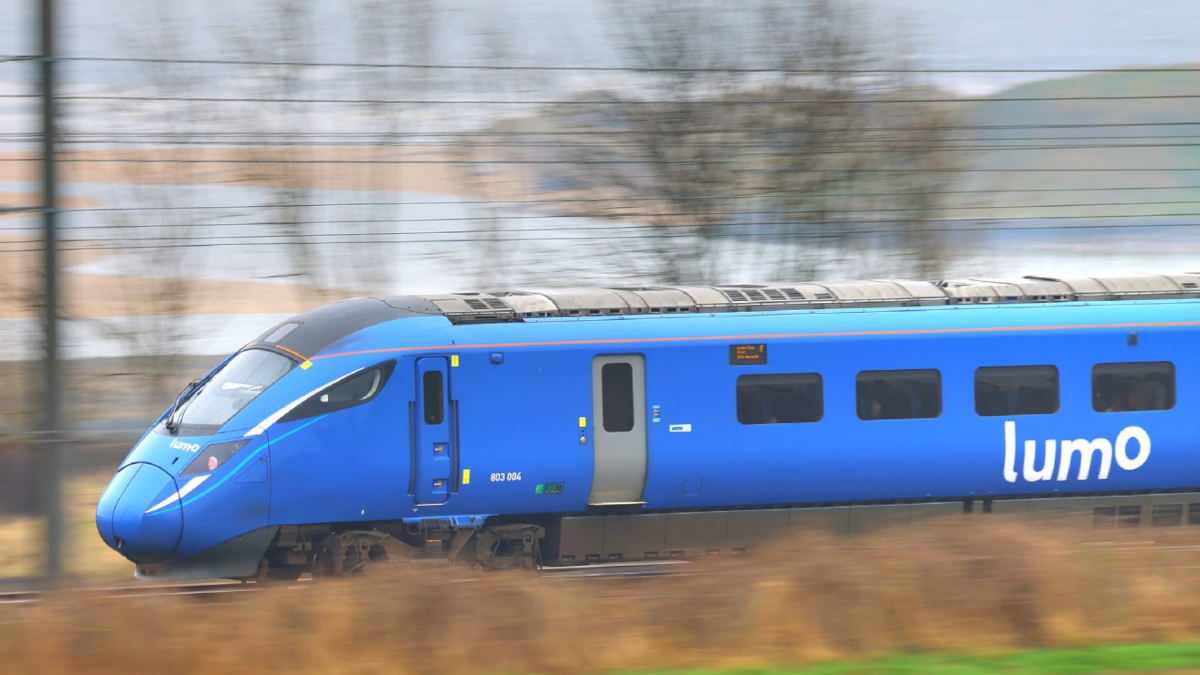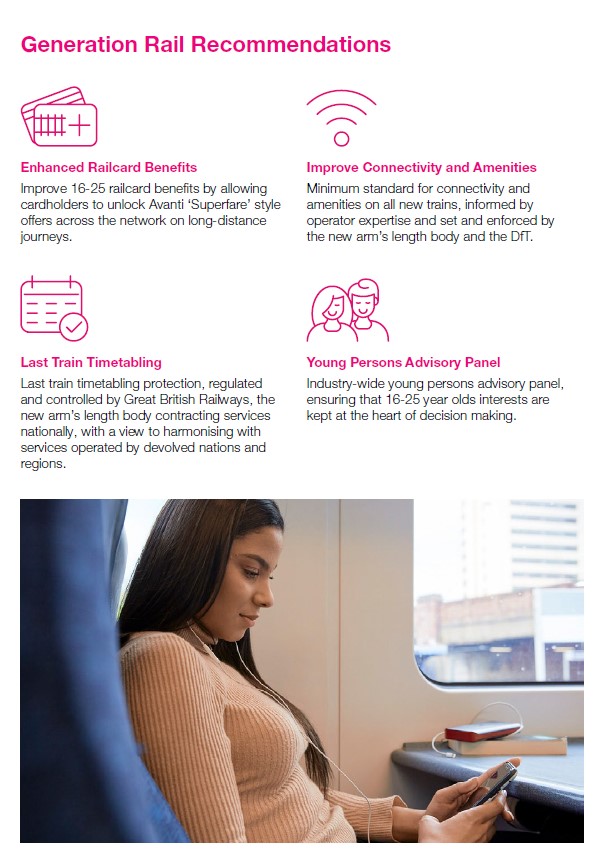Rail operator First Rail has released an ambitious report outlining strategies to unlock ‘Generation Rail’ by 2050.
‘Generation Rail’ makes recommendations to encourage millions of young people to not only choose train travel over alternative modes of transport but to become lifelong advocates for Britain’s railways in decades to come.
First Rail is part of transport operator FirstGroup and the report draws on the Group’s decades of running privately-operated train services in the UK. Today, the business operates GWR, SWR and Avanti West Coast under Department for Transport contracts, as well as open access routes under the Lumo and Hull Trains brands.
With research carried out by Field Research, First Rail asked groups of 18-25 year olds in Exeter, Manchester, Glasgow and London about their experience of UK rail travel. They told us they wanted reliable trains, which offered value for money and offered consistent amenities and experience in stations.
Analysis of a suite of transport statistics also reveals a complex landscape of rail travel in the UK, marked by both growth alongside significant areas for improvement.
National train usage in the UK has seen a significant growth over recent years, with journeys increasing by 13% between Q1 2024 and Q1 2023 (ORR, 2024). A major contributor to this recovery in demand has been the opening of the Elizabeth Line in 2022. As the research revealed, approximately a third (30%) of Elizabeth Line passengers are ‘new’ users – those who would otherwise not have made these journeys or would have used alternative transportation methods (TfL, 2023).
At the same time, the number of journeys being made by young people is surging while the number of young people who hold driving licences is falling. Usage data for 16-25 Railcards show there were 85 million journeys in the year between December 2022 and November 2023 compared to 36 million in the year between December 2019 andNovember 2020 (RDG 2023). Conversely, just a quarter of those aged between 17 and 20 now hold a driving licence, a third lower than in 2019. One in four also say they have no interest in driving (DfT, 2022).
Despite this growth, only 35% of available seats are utilised daily, indicating significant opportunity to increase take up across the timetable.
After a number of years negatively affected by the pandemic and industrial action, reliability emerged as a key concern in the focus groups, with participants emphasising its impact on rail services. This aligns with findings from the latest National Travel Attitudes Survey (DfT, 2023), which revealed that nearly 40% of those who avoid rail travel cite reliability issues as a contributing factor.
Focus groups further revealed young people were in principle content to pay train fares but want to feel they get value for money when they do so. Participants said where they had experienced a service they considered was reliable enough and had basic amenities such as toilets, plug sockets and Wi-Fi, they signalled they would be happy to use trains more and even pay higher fares for some journeys.
To meet these asks, Generation Rail makes a number of recommendations. Enhanced Railcard benefits for young travellers, such as unlocking Avanti-style flexible ‘Superfares’ nationwide could offer more affordable tickets to people aged 16-25. Reforms to timetabling and investment from operators opens significant new possibilities on timetabling, including protecting the last service every night, making it easier to use trains after a night out.
Future train procurement should guarantee minimum standards on amenities and connectivity to ensure consistent experience meeting young peoples’ expectations, on Wi-Fi and charging points, for example. And a Young Persons Advisory Panel should be convened to have a constant dialogue with 16-25 year olds, whether they currently use the train or not, to keep them at the heart of decision making.
Steve Montgomery, managing director of First Rail, said: “Generation Rail is about looking to the future. How can we build on the growth in passenger numbers over the past two decades and ensure many more people are using the train by 2050?
“It needs whole industry solutions – that means operating companies, the government, Network Rail and trade unions – working together on common sense reforms to ensure the reliable, consistent and value for money service we all want is delivered and expanded. We look forward to working closely with the new government to ensure we continue providing competitive and improved services for our customers.
“We work in genuine partnership with the public sector to provide efficient, reliable, safe and increasingly sustainable transport links that connect communities, and our services are critical to ensuring local economies are vibrant and robust.
“Generation Rail is part of our contribution to debates about the future of rail in the UK. Young passengers are a vital part of that future as we work to drive up usage, promote modal shift and ensure our nation is better connected.”
Image credit: FirstGroup


